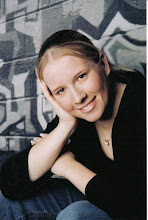
Friedrich Dürrenmatt was a Swiss playwright and dramatist. He achieved prominence after World War II in both Switzerland and Germany.
"Der Verdacht," or Suspicion is the second installment of the Detective Barlach series. Here we find the detective bedridden with terminal cancer. After looking at a picture on the cover of a magazine, he begins to suspect that a respected doctor, Emmenberger, is really a Nazi war criminal, Dr. Nehle. Dr. Nehle is a sadist who operated on Jews in concentration camps. It sound harmless, however, all of these procedures were done without any anesthesia.
Trying to prove his suspicion correctly, Barlach lets himself become a patient of Emmenberger, and eventually his prisoner. After confirming his suspicion, Emmenberger reveals that he is indeed Dr. Nehle, but he has no fear of being found out, because he plans on killing Barlach by performing a surgery without anesthesia. Barlach is saved by a Jew named Gulliver, who managed to survive a horrible operation performed by Dr. Nehle in a concentration camp. We also learn that he is the one who snapped the picture of Dr. Nehle and submitted it to the magazine.
In this story we get a change of roles. Gulliver, who once found himself as the victim, now is the murderer when he kills Emmenberger.
Dürrenmatt wrote, "Wir können als einzelne die Welt nich retten, das wäre eine ebenso hoffnungslose Arbeit wie die des armen Sisyphus; sie ist nicht in unsere Hand gelegt, auch nicht in die Hand eines Mächtigen oder eines Volkes oder in die des Teufels, der doch am mächtigsten ist, sondern in Gottes Hand, der seine Entscheide allein fällt." (from Der Verdacht)
Sisyphus' punishment was set forth by the greek God Zeus, because of his arrogance that he believed he could outsmart Zeus. Sisyphus reported the indiscretions of Zeus to the river God, Asopus, and as a direct result Zeus punished him to an eternity of frustration. He was punished for eternity to roll a huge boulder up a hill, and just as he was about to reach the top of the hill, it would roll back down, forcing him to begin all over again
This is interesting, because through several of the stories, we talked about revenge. In our first story, "Der Verbrecher aus verlornere Ehre," we had a man who was a victim to his society and sought his revenge by killing the man who caused him this anguish. In "Michael Kohlhaas" we have a man who tried to seek revenge for the wrongs done to him, by seeking help from the legal justice system. When they legal system failed him, he, too, sought his own revenge. In the above example about Sisyphus, we have a God who punishes a person as his revenge.
Dürrenmatt said that it is not in our hands, and that it is in the hand of God alone, in which the decision falls. But now we have a sample of a God who is seeking revenge as well.
In an article entitled “Friedrich Dürrenmatt’s Chaos and Calvinism,” by Edward Diller, he poses why Dürrenmatt, as a man of the twentieth century, should not assume that man has the power or capacity to improve on the world, or even aid in his own redemption. The reason behind this is that to believe so, would strip God of His power and His glory, and assume that man has the ability of salvation. Diller proposes that the question pressing on Dürrenmatt is “How God can be glorified in an age that rejects the whole question as ridiculous?”Man robs God of His glory, then, by ignoring his existence or by rebelling.
Diller, Edward. "Friedrich Dürrenmatt's Chaos and Calvinism." Monatshefte. Spring, 1971. Retrieved from JSTOR: http://www.jstor.org/stable/30156508?&Search=yes&term=%22Der+Verdacht%22&term=Friedrich&term=D%C3%BCrrenmatt%27s&list=hide&searchUri=%2Faction%2FdoBasicSearch%3FQuery%3DFriedrich%2BD%25C3%25BCrrenmatt%2527s%2B%2522Der%2BVerdacht%26gw%3Djtx%26prq%3DFriedrich%2BD%25C3%25BCrrenmatt%2527s%2B%2522Der%2BRichter%2Bund%2Bsein%2BHenker%2522%2B%2BGluttony%252C%2BVictory%252C%2BAND%2BJustice%2BFriedrich%2BD%25C3%25BCrrenmatt%2527s%2B%2522Der%2BVerdacht%2522%26hp%3D25%26wc%3Don&item=1&ttl=8&returnArticleService=showArticle&cookieSet=1. Pp. 28-40

No comments:
Post a Comment